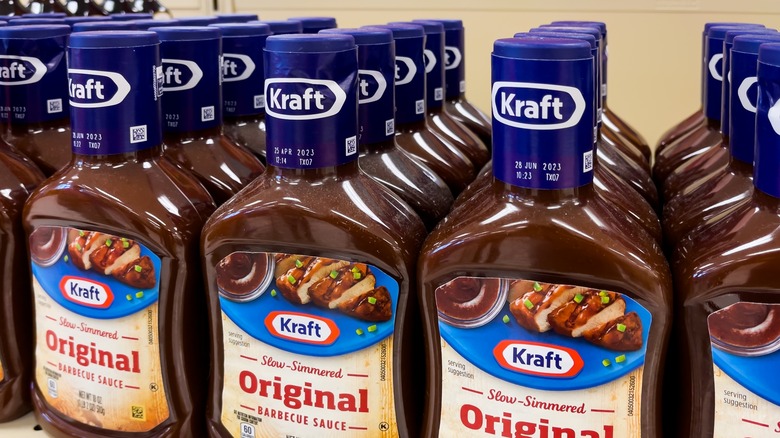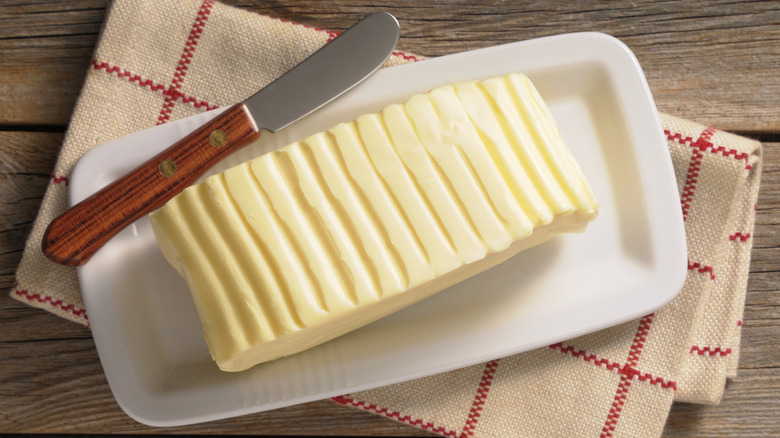The Reason Unopened BBQ Sauce Doesn't Need To Be Refrigerated
Have you ever forgotten to put a bottle of barbecue sauce in the refrigerator after grocery shopping, and had no idea if it was still safe to use? Or maybe you wanted to free up space in the fridge, and wondered if it was okay to keep the unopened sauce in your pantry. The answer to both is a definite yes! Thanks to its high acidity, barbecue sauce — just like ketchup, a very similar condiment — has protection against foodborne bacteria, whether it's your favorite brand or celebrity chef Bobby Flay's go-to sauce.
Food-borne bacteria grow best in an environment that's either neutral or just slightly acidic, and barbecue sauce gets plenty of acid from the tomatoes and vinegar in most recipes. Microorganisms that cause food to spoil require a pH (acidity measure) of at least 4.6 to thrive, while the pH range of store-bought barbecue sauce is usually below this, at around 3.4 to 4.15.
However, to be extra safe, preserve its taste, and extend its shelf life, it's best to refrigerate barbecue sauce once it's been opened — leaving an opened bottle out of the fridge is a meal prep mistake that could make you sick. You'll have about six months at the minimum to finish the sauce once it's in the icebox.
Other foods you can safely keep out of the refrigerator
What determines if a certain food can sit out or needs to be in the fridge ASAP? There are six key elements that allow food-borne bacteria to grow (or not grow), referred to with the quirky shorthand term FAT TOM. This stands for food type; acidity; temperature; time; oxygen; and moisture. In addition to its acidity, a FAT TOM factor that keeps unopened barbecue sauce fresh is a lack of oxygen. Naturally, when the bottle is sealed, it's getting little to no air exposure, but once you pop it open and oxygen hits the surface, the clock starts ticking.
FAT TOM applies to many other foods people keep in the refrigerator, when they really don't need to be there. Maple syrup and peanut butter, for instance, are too low in moisture for bacteria to grow, and jams and jellies are both too acidic and low in water.
Another surprising example for a lot of people is butter, which is perfectly fine to keep on your counter. The bonus is the warmer temperature makes it easier to spread on your toast. What keeps butter safe is that it's mostly fat without much protein, and the latter is high-risk for bacteria growth. However, butter can still go rancid and taste bad if not stored properly or kept for too long. Avoid the big pitfall of storing butter on the counter by keeping it at room temperature in a covered, opaque butter dish, to protect it from light, oxygen, and heat.


